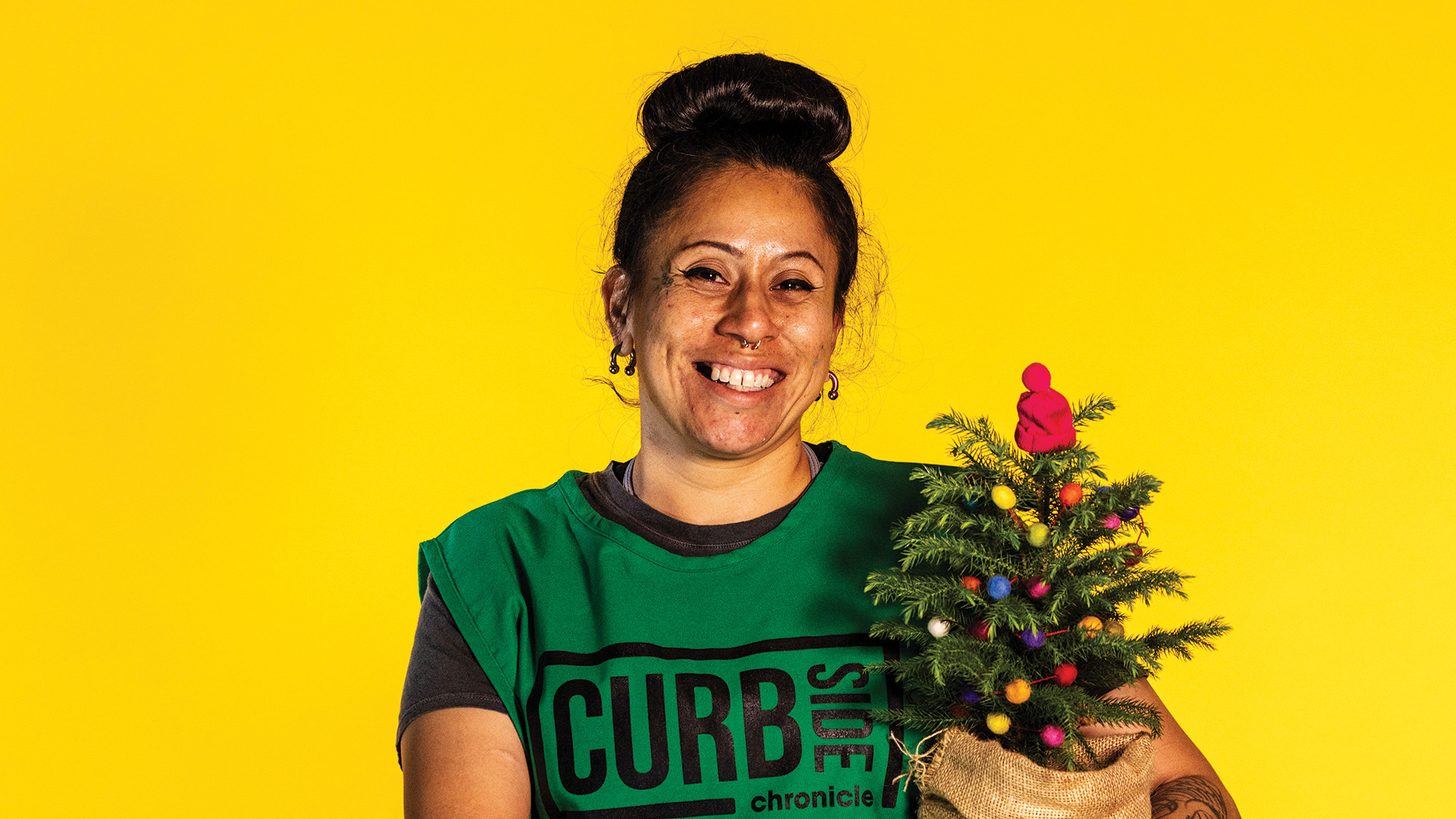Nathan Poppe: You auditioned to be in Killers of the Flower Moon. Can you tell me what that day was like?
Amethyst: It was so fun. Oh, my gosh, there were so many Indians from all over the state. It was a blast. Because when natives get together, we don’t even have to know each other, we just start chopping it up. We were giggling and having a good time. It was to be extras. The line was really long. Basically, they asked our names and took some pictures.
What made you want to try?
I thought it’d be a cool way to get money. You know, sounds like a big deal and I would have liked to be a part of it.
Remind me, what tribe are you affiliated with?
I’m Muscogee Creek and I’m Lakota Sioux. My mom is full-blooded Creek and my dad was half Lakota and half Musko.
Advertising helps fund Big Issue’s mission to end poverty
Were you already familiar with the history of what happened to the Osage?
A little bit. My mother is an elder so she always talks about stuff. The Osages got all that oil money then a bunch of really bad things happened whenever they first started getting assimilated. Americans took advantage and killed them for their money. I think [my mom] wanted me to be enlightened about that type of stuff. Now that I’m older, we have deep conversations. We come together and talk about like: oh, I saw this or I read this, or I heard this, then we can bring our own experience to the discussion. So I did know a little.
Get the latest news and insight into how the Big Issue magazine is made by signing up for the Inside Big Issue newsletter
How does it feel when you know Killers of the Flower Moon will put a spotlight on native history?
This is really cool. It feels good to have our history acknowledged. It’s very interesting to be to be Indigenous here. Truly we’re living in two worlds, two cultures. So it’s really cool that somebody like Martin Scorsese wanted to do a movie. I’m really glad it’s being highlighted because that’s stuff in American history that people don’t get to learn in public schools. Knowing the truth about some of the deep, severe traumas and struggles that certain people have gone through is important because that affects us to this day.
Where in Oklahoma did you grow up?
Advertising helps fund Big Issue’s mission to end poverty
I grew up in Tulsa. The east side. And when I was homeless there, it was more along the Arkansas River. I kind of feel like both places are my home.
When did you first experience homelessness?
Let me see. I believe it was 2014. I was born in 1985 so I would have been 28 or 29. I have been battling addiction and mental illness since I was a teenager. Along with that comes bad relationships I’ve been involved in. I was in an unhealthy relationship and that person was in prison. And it was just like the last straw. I’ve been diagnosed with borderline personality disorder. When people have that, they have a really difficult time with breaking up, with separation and abandonment issues, and that’s hard for people to handle if they don’t have enough coping skills. So anyway, that relationship broke up and I just self-medicated. The only place I could drink the way I needed to drink at that point was out on the street. So off to the street I went. And I stayed there for way too long.
When did you first get connected with Curbside?
I got connected with Curbside around 2020.
And how are you doing today?
Advertising helps fund Big Issue’s mission to end poverty
Things are going great. Honestly, just to be realistic, I really don’t think I could ask for much more right now. I’ve got everything I need. I got those two cats. I’m in my children’s lives. My job is amazing.
Are you planning to see the movie yourself?
Yeah, for sure.
Even though you’re bummed out that you’re not in it?
For sure! It’s gonna be really good!
Killers of the Flower Moon is in cinemas now.
Advertising helps fund Big Issue’s mission to end poverty









